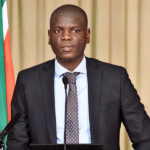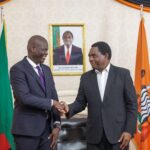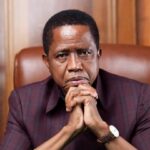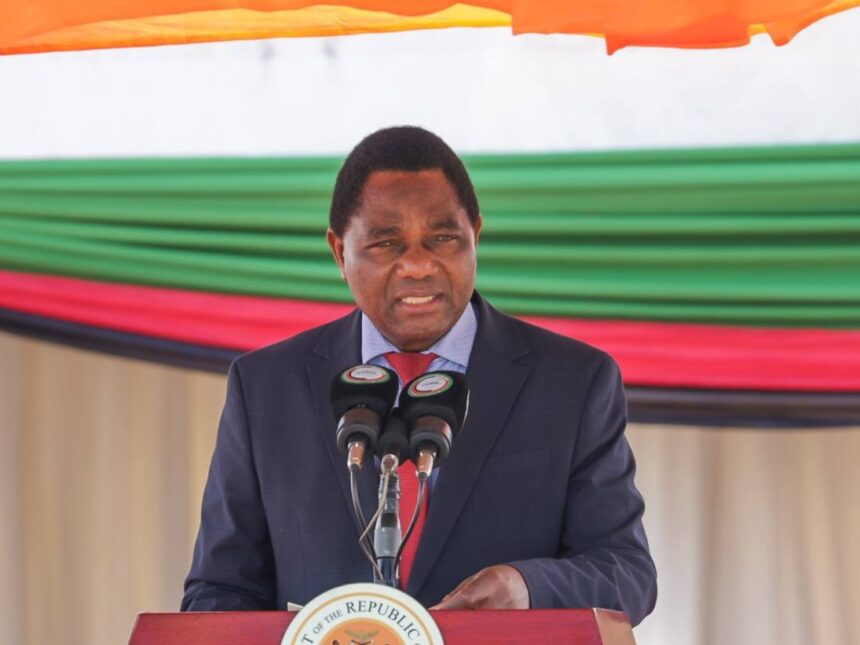President Hakainde Hichilema has described the recent announcement by the United States to slash K1.4 billion in annual aid to Zambia’s health sector as a wake-up call—not only for Zambia but for the entire African continent. Speaking at the Inaugural African Continental Free Trade Area (AfCFTA) Digital Trade Forum in Lusaka, the President said the continent must urgently shift from dependency to self-reliance.
The Zambian Head of State said the withdrawal of donor support, particularly for antiretroviral (ARV) drugs, should not only prompt outrage but spark introspection and reform across Africa. “Yes, we can complain about ARVs not being paid for by other taxpayers outside Africa. Yes, we can complain about development assistance shrinking,” he said. “I actually think that this is a wake-up call to Africa that we have been doing things wrongly for too many years, waiting for someone to do things for us. We must do those things ourselves.”
His remarks followed the announcement by U.S. Ambassador to Zambia Michael Gonzales that the U.S. government would cut its health funding due to the Zambian government’s failure to act decisively against the theft of American-donated medical supplies. Ambassador Gonzales pointed to what he described as an “organised criminal endeavour” involving senior figures in the country’s supply chain.
President Hichilema, in a candid and passionate speech, said the reduction in foreign aid must be viewed as a hard lesson—but also as a critical opportunity for Africa to redefine its development agenda. “Africa needed not one slap but two slaps on both cheeks,” he said. “Let’s flip our coin, there’s an opportunity in that. It’s an opportunity—a great one for that matter.”
The President challenged African countries to confront the root causes of underdevelopment, including over-reliance on imports and weak internal trade networks. “Why are we confident that African countries trade the least with themselves?” he asked. “Why are we buying wheat from continents outside Africa when Africa has land to produce it ourselves? Why do we say we don’t like GMOs and then eat cornflakes, which are GMOs?”
He cited countries like Nigeria, South Africa, and Ethiopia as examples of African nations taking meaningful steps toward self-sufficiency, and called on the rest of the continent to follow suit. “There’s a lot we can do. The reduction in aid is not the end—it’s the beginning of a new chapter where Africa takes control of its destiny.”
President Hichilema’s remarks come at a time when Zambia faces mounting pressure to curb corruption and inefficiencies within its public health sector, while also reimagining its economic policies under the AfCFTA framework. The forum, which brings together leaders and stakeholders from across the continent, aims to leverage digital trade as a means to deepen intra-African commerce and reduce dependency on external aid.
With donor confidence shaken and citizens facing the potential fallout from reduced healthcare support, Zambia’s leadership now faces the challenge—and the opportunity—of building a more resilient, self-sustaining future.






